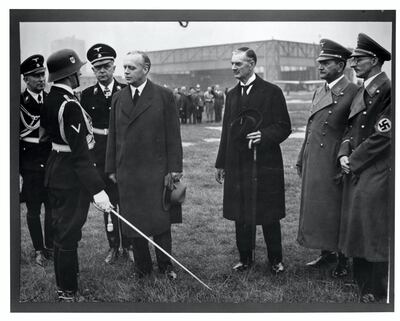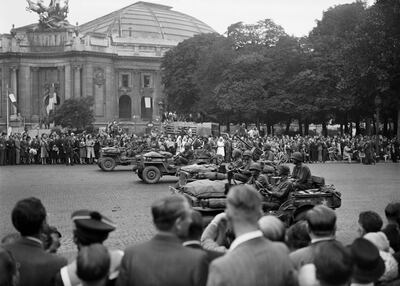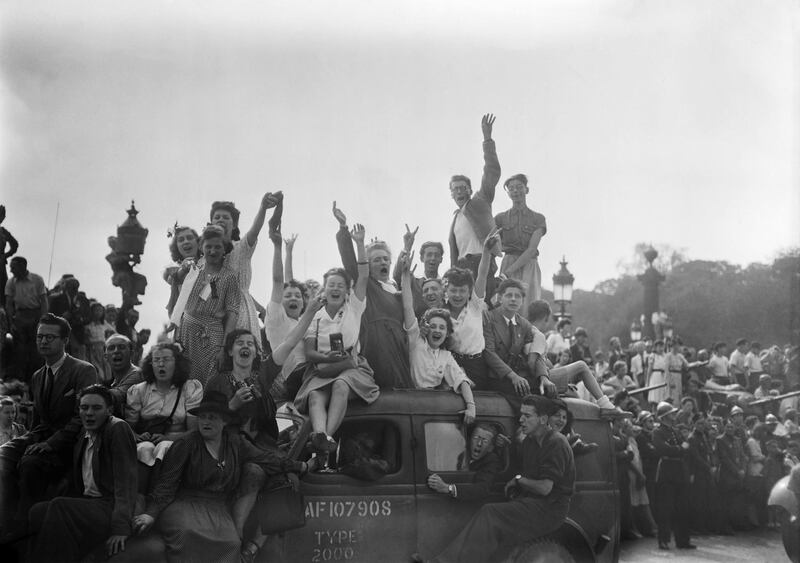Who shapes and decides history, and for whose benefit? These are questions raised by a Russian exhibition on the Second World War, a section of which is devoted to the Soviet Union’s treaty of non-aggression with Nazi Germany between 1939 and 1941. The Molotov-Ribbentrop Pact – named after the then foreign ministers of the two countries – is no obscure detail, even if it less widely known than it should be. Critics say that it allowed Adolf Hitler a free hand to conquer most of western Europe and for the two signatories to divide Poland between them, while the USSR also overran the Baltic states of Estonia, Latvia and Lithuania. Proof, it is said, of the opportunism of Joseph Stalin and the Soviets, who only joined forces with the Allies after Hitler unilaterally terminated the pact and invaded Russia.
For Russian Foreign Minister Sergey Lavrov, this narrative was part of an attempt by western countries “to cover up the unseemly role of their own states’ complicity with the Hitler regime”.
He said at the opening of the exhibition: “At a time when storm clouds were gathering over Europe, the western capitals – in the hope of staying safe at the expense of others – made a selfish and an extremely short-sighted choice in favour of appeasing the Hitler regime. The Munich Agreement of 1938 was the apotheosis of this policy.” They were playing a double game to force confrontation on the eastern front, said Mr Lavrov, leaving the Soviet Union no choice but to buy time to prepare for eventual war.
This is a startlingly revisionist view, and one with which many historians would disagree. But it is true that events at the time were much more complex, nuanced and morally compromised than the story of the “good” Allies defeating the “evil” axis forces suggests. Poland, for instance, also benefited from the dismemberment of Czechoslovakia after the Munich Agreement. It annexed a sizeable chunk of territory, an act of undeniable collusion with the German regime that was to defeat its armies only the following year. There were many in France, which fell to Germany in 1940, who feared communism more than fascism, and a smaller number – including those who were later prominent in post-war public life – were active or even enthusiastic collaborators under the Vichy Nazi-puppet state.

But we hear little of this, just as Mr Lavrov is right to point out that the USSR's role in the Allies' ultimate triumph has been underestimated – for the good reason that in this case, history was mostly written by the victors.
Many of these truths were inconvenient. It was necessary to skate over the USSR’s pact with Germany after it had entered the war on the Allied side, and once it had become an enemy of the West with the advent of the Cold War, to downplay its immense sacrifice of millions of soldiers. Poland was a victim. Who wanted to talk about its dishonourable part post-Munich? France needed to recover from the embarrassment of its sudden collapse by playing up the role of the Resistance.

And so this became the history of the time, of plucky Britain standing alone until America rode in to the rescue. It was endlessly replayed in films and TV series when I was growing up in the 1970s – but we saw little, if any, of the African and Indian soldiers who died in the hundreds of thousands. It seemed to be a white man’s war, save for the Japanese, invariably caricatured as cruel Asiatics. The reality was very different. Around 60,000 white prisoners of war may have perished in the construction of Japan’s infamous Burma railway, but that figure is still far better known than that of the 150,000 local forced labourers who also lost their lives under even worse conditions.
It may be that every generation rewrites history – the weight currently being given to reconsidering the legacy of slavery and possible reparations for descendants is an example of this – but the issue of who holds the pen continues to stand. The history of the 1969 race riots in Malaysia, for instance, is still not settled. Were they spontaneous, or were they provoked? Talking to former ministers from the 1970s to the 1990s, I have heard many tales that have not been committed to paper, and are not likely to be, either – sometimes for the respectable reason of preserving racial harmony in a uniquely diverse country, sometimes for the familiar reason of protecting the powerful.
Even contemporary reporting – the first draft of history, as it is sometimes called – can be misleading. I remember attending the British Conservatives’ conference in 1997, just after the party had been booted from government by Tony Blair’s Labour party. The media unanimously portrayed a gathering broken by their ejection from office. What I saw, however, was MPs and party workers in a very cheery mood. Worn down by the continuous scandals of the late John Major premiership, they seemed to be deliriously demob happy: having hit rock bottom, the only way could be up. But this will never be part of the history of the Conservative party during this time, because no one wrote about it. It was excluded by the mainstream media’s confirmation bias.
The lesson I draw from this is to be suspicious whenever history appears to be overly black and white. There are nearly always shades of grey. With respect to Stalin and Hitler and their non-aggression pact, Mr Lavrov might have overstated his case. I think few in the West wish, as he says, "to whitewash the villains, to put executioners and their victims on the same level", but there is no doubt that the Second World War and many other periods of history are far more complicated than they are still commonly presented as being.
So ask not just what it is the historian has written. You should also ask: why?
Sholto Byrnes is a commentator and consultant in Kuala Lumpur and a corresponding fellow of the Erasmus Forum






